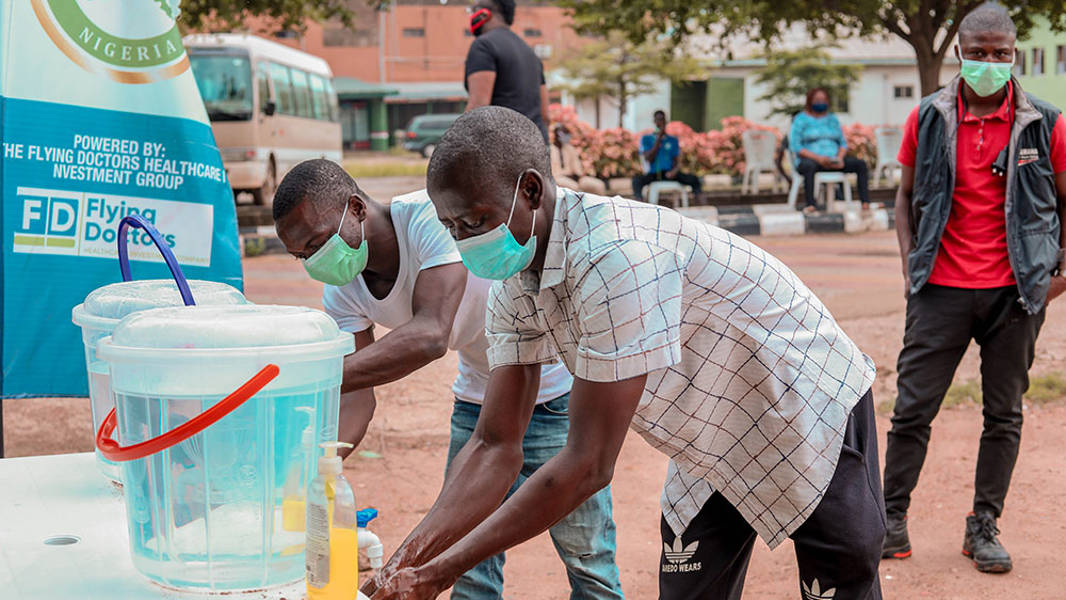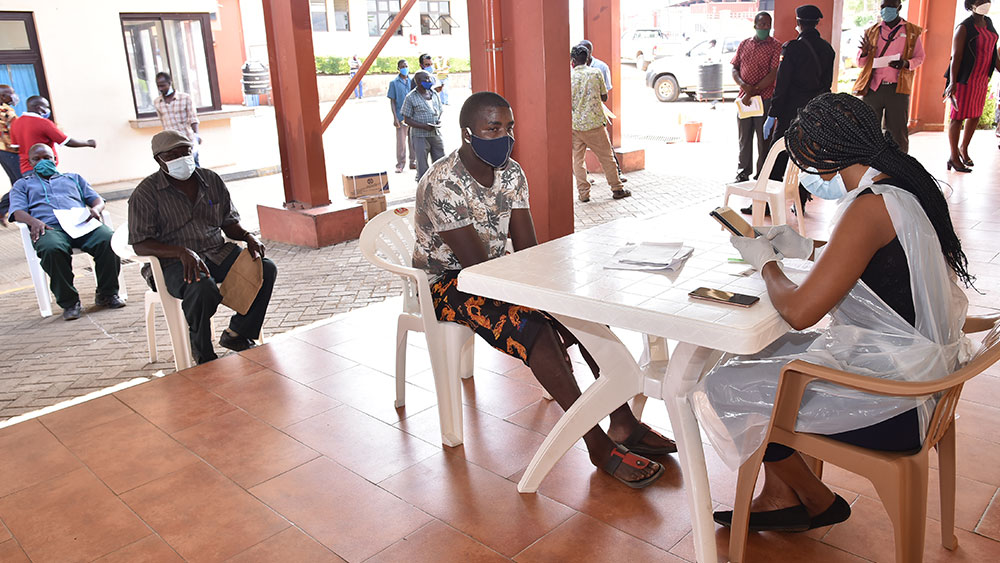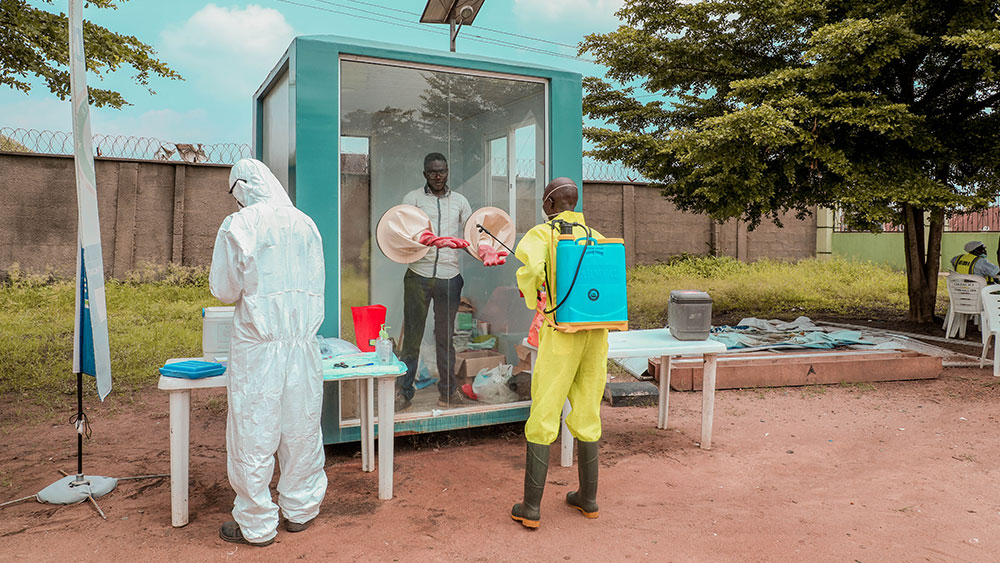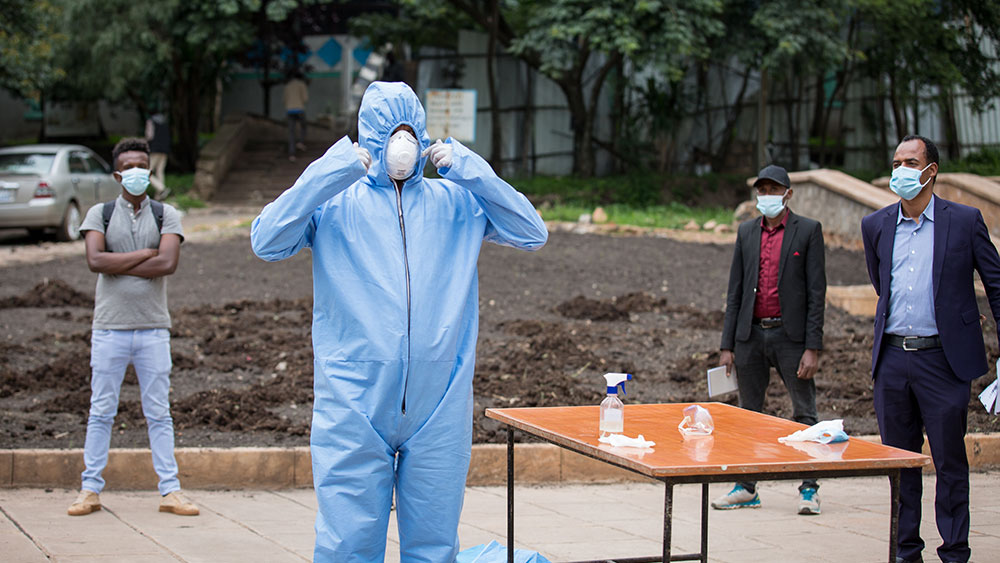
Deploying proven strategies to facilitate pandemic response and preparedness across Africa
“In order to move from COVID managing us to us managing COVID, we need to continue a multi-layered approach: getting vaccinated as quickly as possible, wearing masks, distancing when able and reducing secondary burdens. A critical piece of this strategy is expanding vaccine production and supply to low-income countries.”
Underlying the multi-layered work of Resolve to Save Lives in more than 60 countries around the world is a straightforward public health goal: preventing death from epidemics and from cardiovascular disease. This pairing of global reach with unity of purpose, as well as a deep commitment to collaboration, led the Stavros Niarchos Foundation (SNF) to partner with the initiative in its response to the COVID-19 pandemic.
Resolve to Save Lives helps share and activate proven strategies for achieving better health outcomes in low- and middle-income countries. The organization works through a network of global and national partners, from the World Health Organization to the National Heart Foundation of Bangladesh.
In spring 2020, as SNF was formulating its response to the recently declared pandemic, it sought to help bolster the global health response, including in countries in Africa. Working with Bloomberg Philanthropies, SNF turned to Resolve, which has supported more than 20 countries across Africa in preparing for and responding to epidemics, to help quickly reach organizations working on the ground and across the continent. SNF’s major grant to Resolve was included in the first round of its global COVID-19 relief initiative.
Resolve focused its intervention on a number of strategic areas, including providing funding to help countries detect and control outbreaks rapidly, encouraging the adoption of public health and social measures, facilitating effective crisis communication, sharing data and analysis, embedding technical advisors, and developing laboratory capacity. Protecting health care workers while maintaining essential services was a key overarching goal, and funding for critical health care worker training was a cornerstone of the response.
From March 2020 to March 2021, the organization supported the activation of 246—out of a total of 332—COVID-19 molecular testing labs across 10 countries in Africa, labs which have conducted around a third of all tests in these countries.
In the Democratic Republic of the Congo, Resolve helped foster rapid response and effective follow-up for COVID-19 cases, increasing the rate of contact follow-up from 18% to 92% over the course of three months. In Sierra Leone, sites supported by Resolve conducted more than 10,000 COVID-19 tests, representing 30% of case investigation in the country. In Zimbabwe, more than 44,000 people were contacted through community education efforts, while in Togo, educational media campaigns had a potential reach of 3.5 million people.
As much as Resolve’s work involves emergency responses to immediate crises, it is also about building enduring capacity. As we look toward an uncertain future, Resolve is working in building health systems back better so that we’re prepared to counter future epidemics and address ongoing health challenges.


